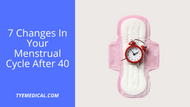7 Changes In Your Menstrual Cycle After 40
Written by TYE Medical on Feb 6th 2024
Your 40s are often a transitory time as hormones begin to fluctuate, causing changes in your menstrual cycle (among other things). This is when you might notice a change in the frequency and flow of your periods and even changes in PMS symptoms. This means that if your cycle has always run like clockwork…the lack of predictability could be a big adjustment for you.
Around age 52 most women experience menopause, or the cessation of their periods. Until then, you can expect its inevitable arrival even if it’s not on schedule or operating the way it always has. Welcome to perimenopause. Here are some changes you’re likely to experience.
Perimenopause

Perimenopause is the period of hormonal changes and transitions leading up to menopause. Although often misunderstood, menopause is reached once you go twelve straight months without menstruation, (no period for twelve months). Toward the end of perimenopause, you might miss periods. But it’s only considered menopause when you’ve gone 12 months straight without one. Meanwhile, all those symptoms you often hear about, the hot flashes, the mood swings, the crazy periods, all occur during perimenopause.
1. Missing Periods
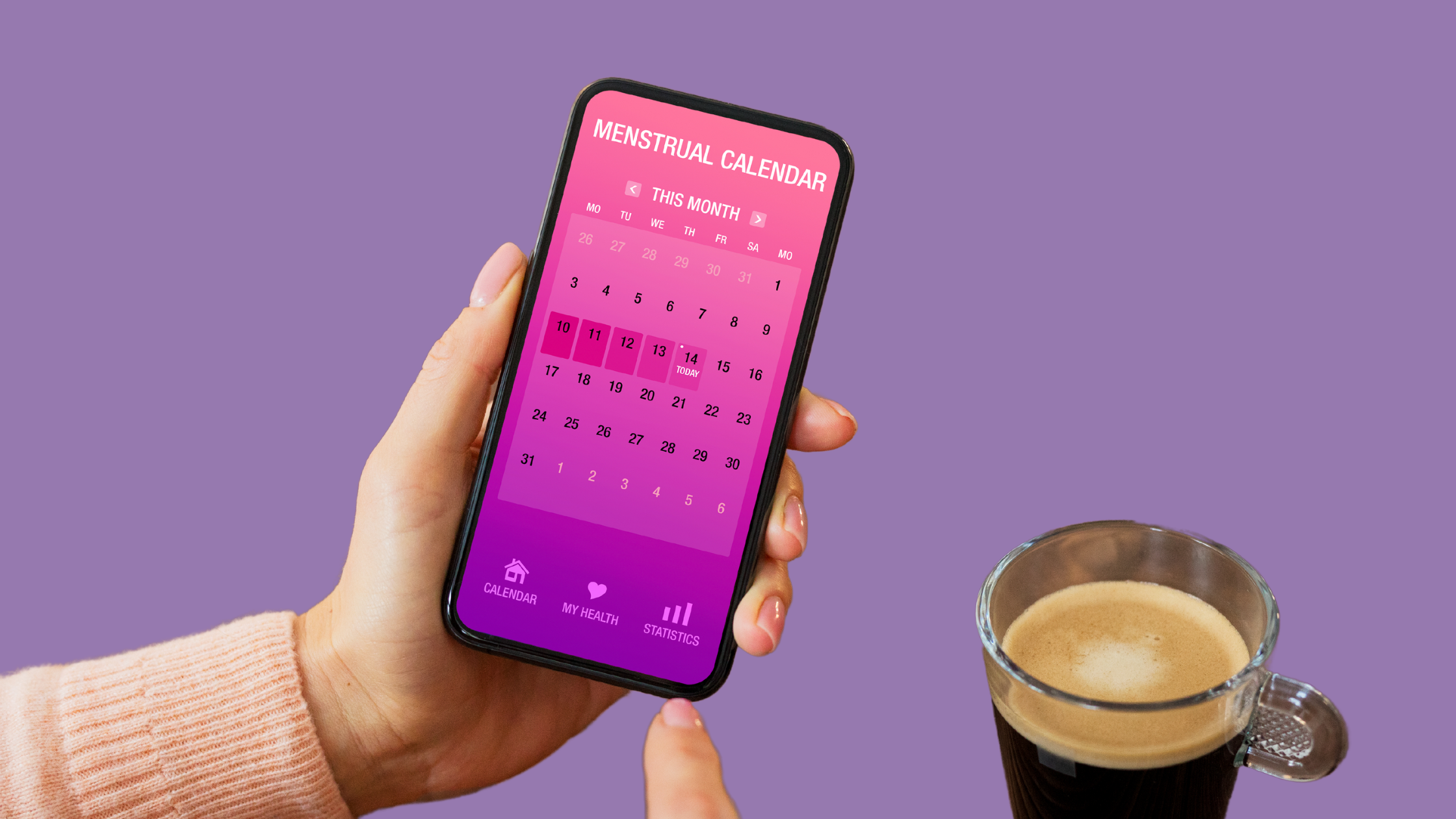
During your 40s, you’ll notice your periods are more spaced out. You might skip a month or two here and there. But don’t get too excited, because perimenopause often lasts about seven years. So, if you’re just getting started, you’ll continue to have your unreliable monthly visitor for a while.
So, why are you missing periods exactly? Because of hormonal changes, some months your eggs aren’t released in ovulation, which means no menstruation.
2. Your Periods Come More Frequently
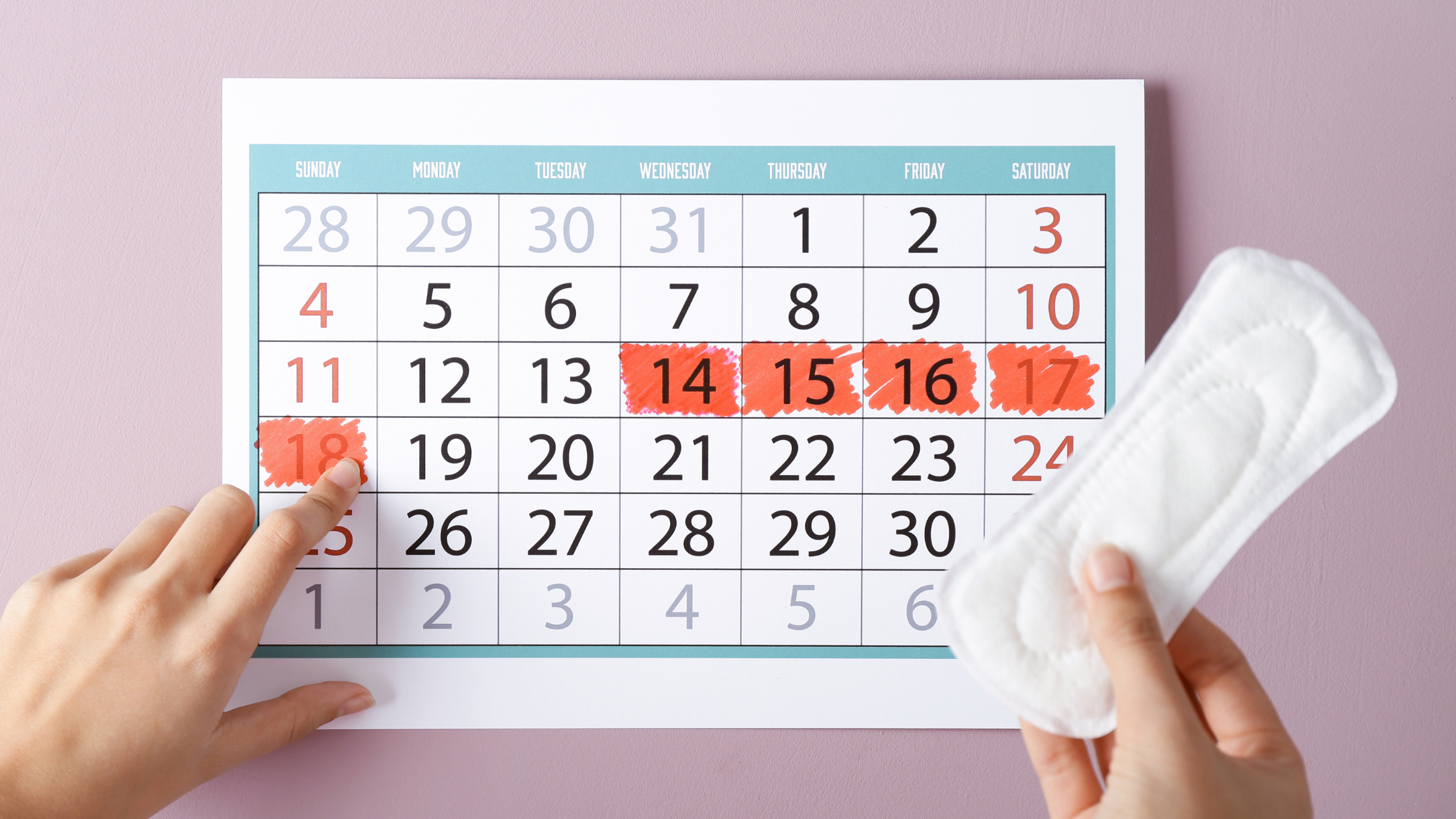
You might also notice your periods are coming closer together. It all depends on how your hormones react and work together. If shorter spikes of estrogen and progesterone happen during your cycle, you’ll have more frequent periods. No, it’s not ideal, but it’s a natural biological response for some women.
3. Your Flow Gets Heavier
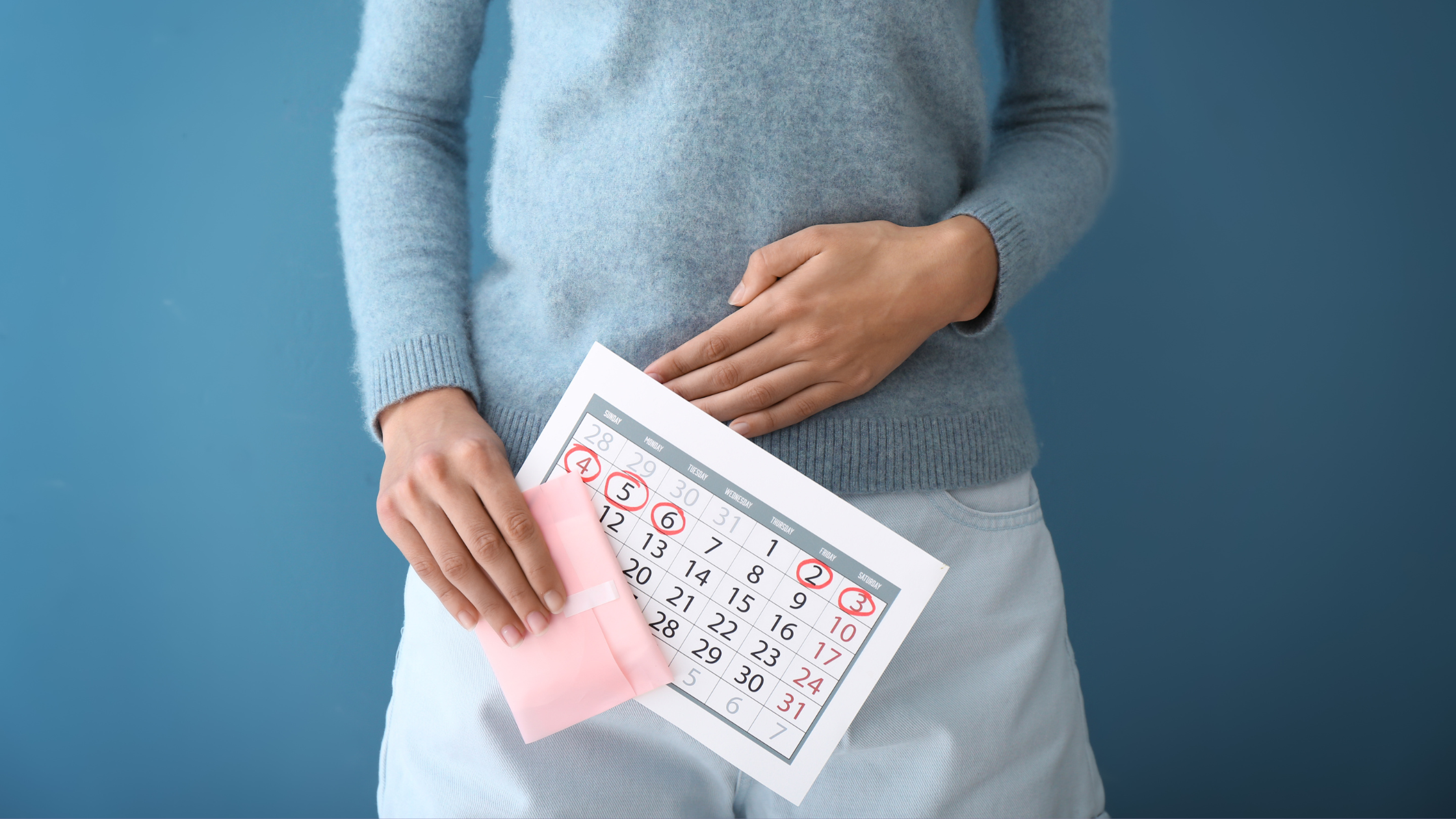
All these hormonal changes are triggered by your ovaries. They are calling the shots as they wind down the reproductive process. Some months will run on a regular schedule as your ovaries release eggs on time. Other months, your ovaries may release eggs late, making your period late.
And there will be months you don’t ovulate (release eggs) at all, which means you’ll skip your period entirely. When this happens, the lining of your uterus continues to thicken so that your flow is heavier when you finally start your period.
But don’t assume that all heavy bleeding must be perimenopause. Other conditions can affect menstruation in your forties, such as hypothyroidism and polycystic ovary syndrome (PCOS). If you have significantly heavy bleeding during your period, it’s best to talk to your doctor.
4. PMS Might Get Worse

The fluctuating hormones that accompany perimenopause can affect your moods and emotions. After 40, you might notice your PMS symptoms intensifying. If you already have PMS mood symptoms, you might notice greater fluctuations in these moods during PMS. Hormonal fluctuations can become drastic to the point of causing depression in some women.
If your depression becomes significant, immediately reach out to a doctor. Antidepressant medications are very effective in treating hormone-related depression. It’s best to treat as soon as possible during perimenopause, because the depression can grow more severe as you draw closer to menopause.
5. Painful Menstrual Cramps
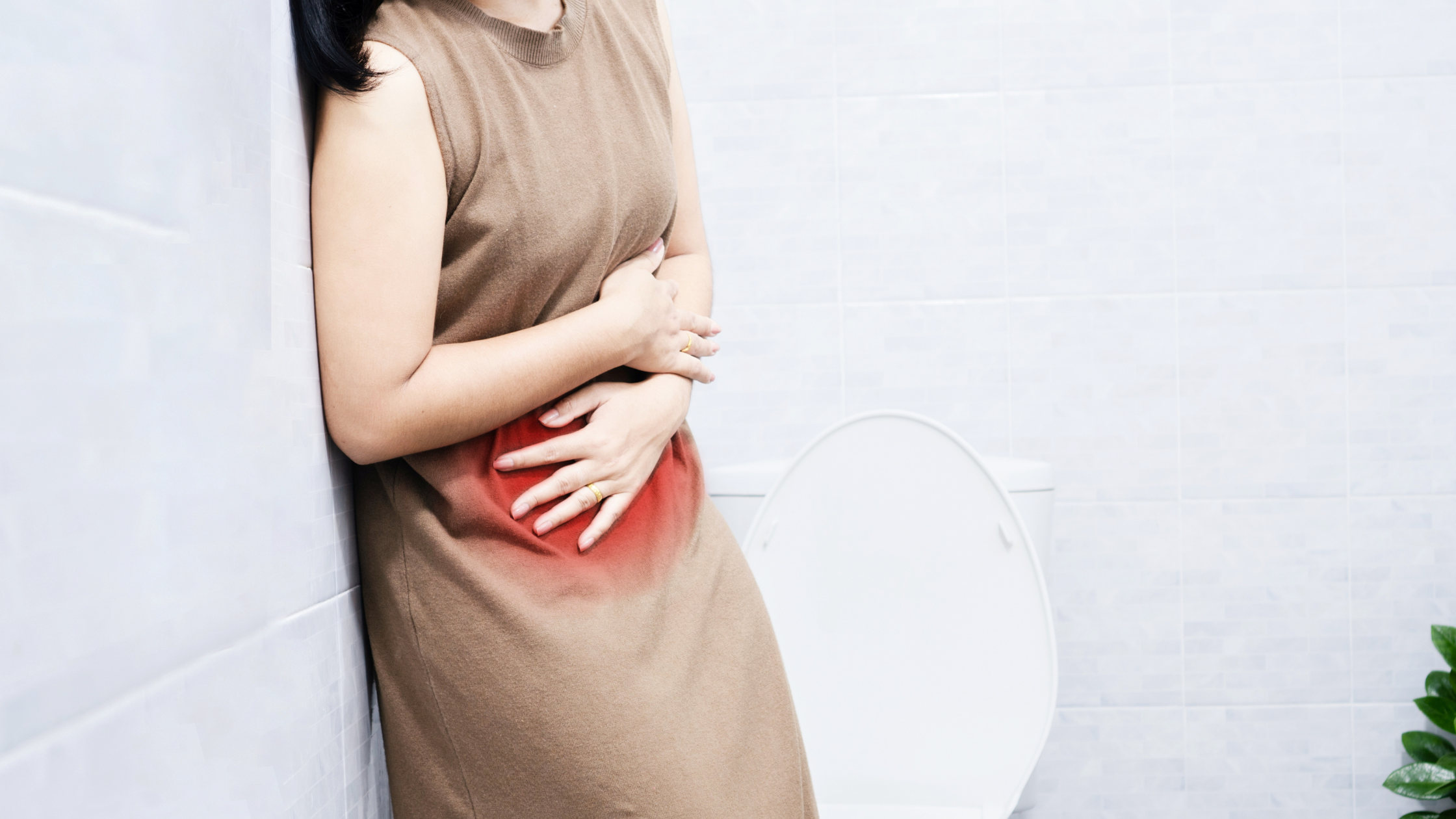
Even if your periods are lighter or less frequent than they were, your cramps can get worse during the early stages of perimenopause. This is due to the stronger surges of estrogen and progesterone. But you won’t have to deal with this through all of perimenopause. The closer you get to official menopause, the more your periods should lighten, become less frequent, and less painful.
6. But…You Can Still Get Pregnant

Even though you’re certain that you’re full-swing into perimenopause, you can still get pregnant. However, the odds of pregnancy continue to decrease as you move through your 40s and become less fertile. This is because of lower quality eggs and irregular ovulation during these years.
But as long as you’re still having periods, you can still conceive. If you don’t want to get pregnant in your 40s, you’ll need to talk with your doctor about birth control options.
7. Other Changes Related to Your Menstrual Cycle After 40

A host of changes occur during perimenopause. You might notice some symptoms are more intense than others. But you will surely experience some changes, such as:
- Night sweats
- Hot flashes
- Acne
Most of the time, changes in your cycle during your 40s are normal and nothing to be concerned about. But sometimes it’s difficult to tell the difference between perimenopause and underlying causes not related to hormone changes. If the changes in your period are sudden and dramatic, you should see an ob-gyn to see if your symptoms are due to fibroids, polyps, or pre-cancer.
What to Remember About Changes In Your Menstrual Cycle After 40
Expect change. your periods will not stay the same throughout this time. Some of these changes include irregular periods, heavier flow, missed periods, intensified PMS, and acne. If any of your symptoms are sudden or severe, it’s best to see a doctor to determine if there are other more serious causes of your symptoms.
Learn more from our article, Menopause: Onset and Symptoms Through the Years.

